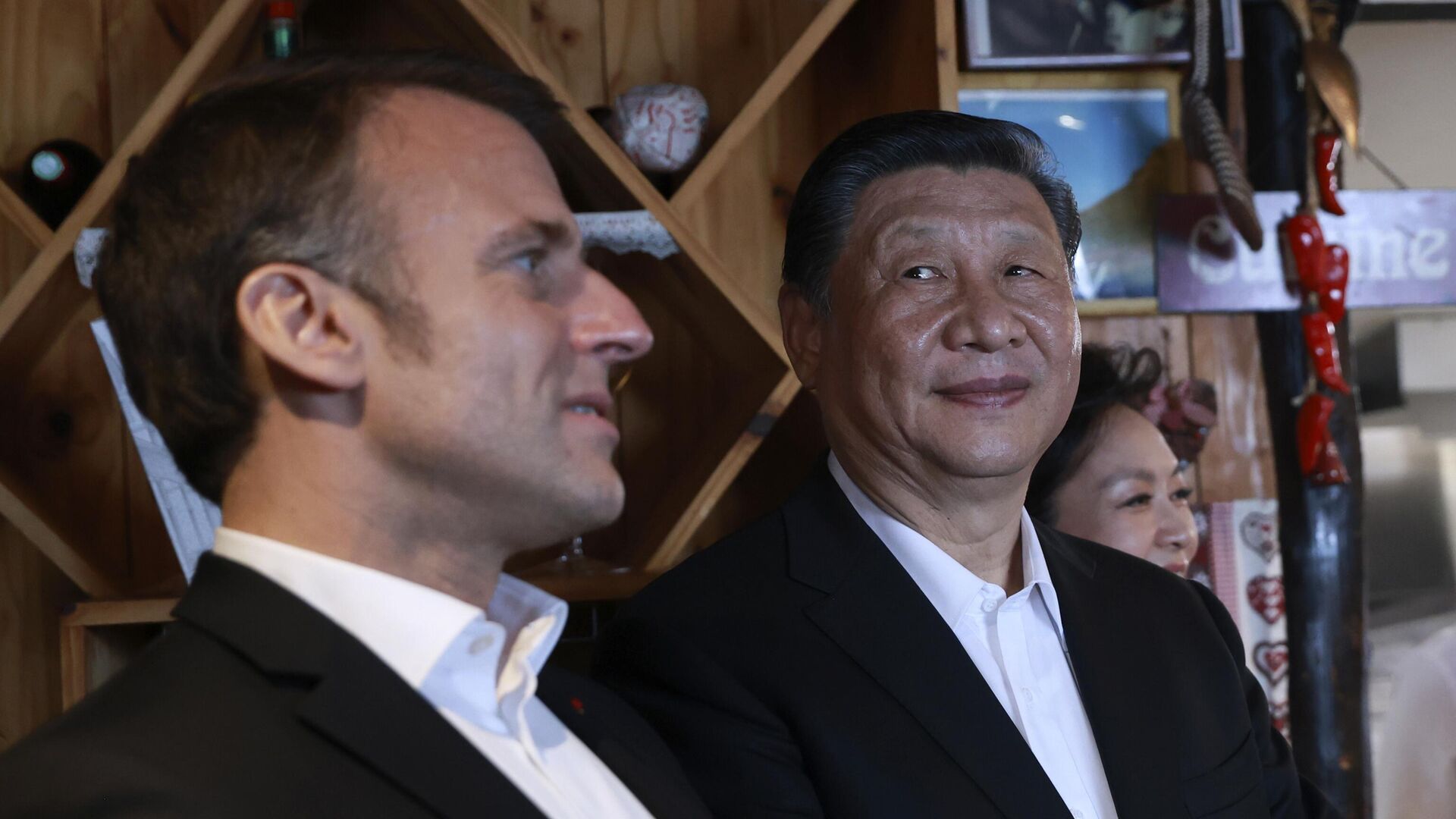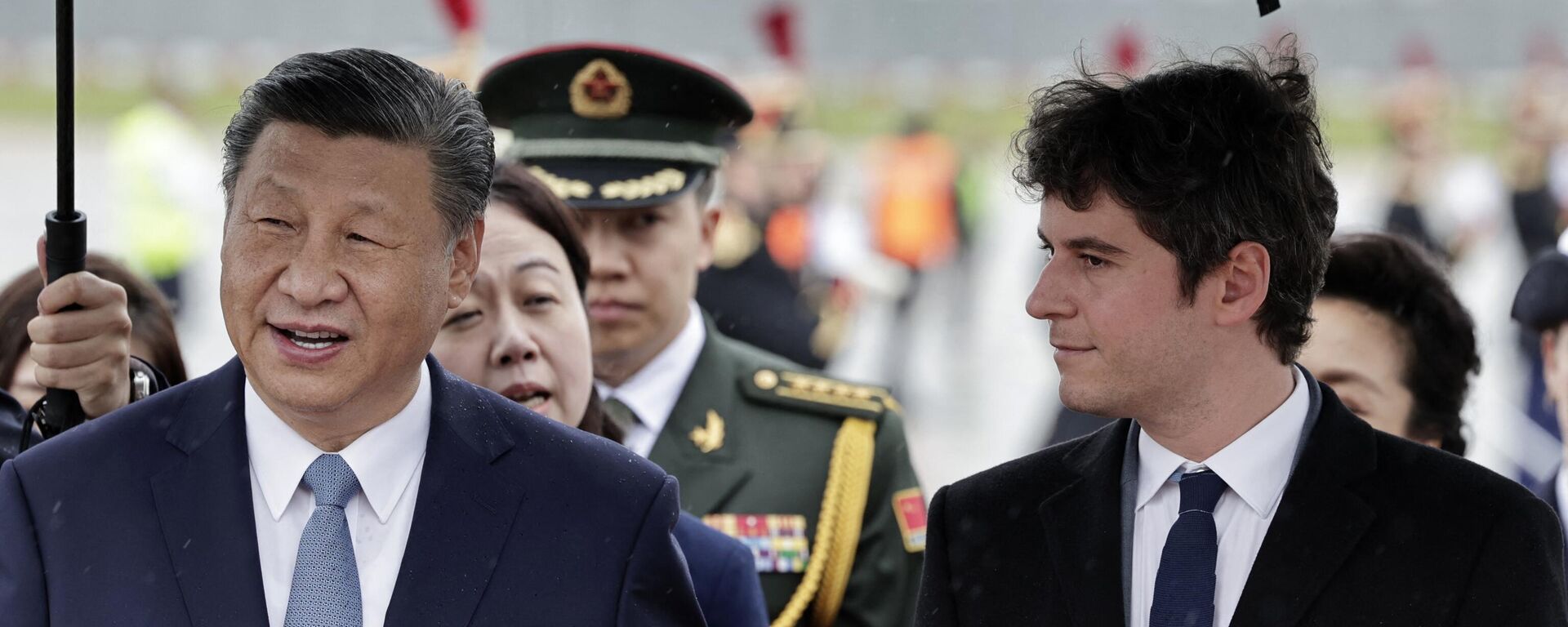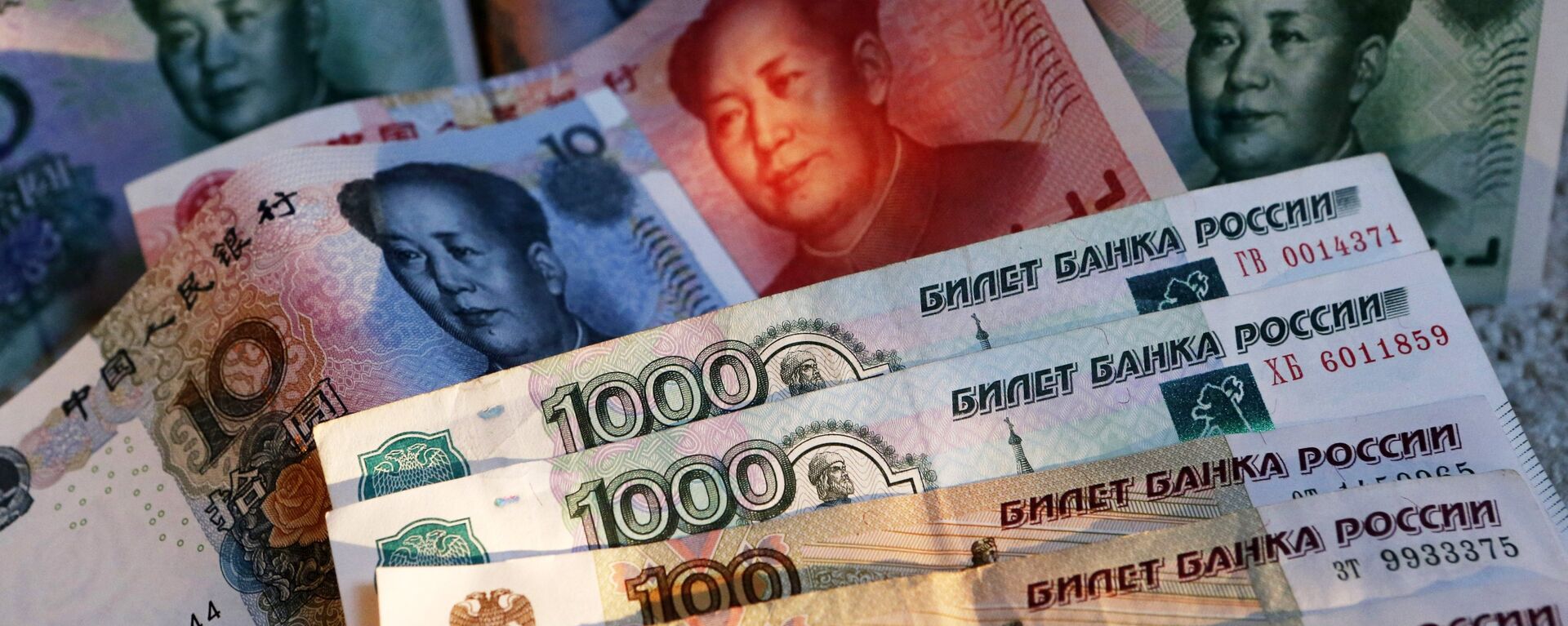Will Xi Pry Europe From US?

© AP Photo / Aurelien Morissard
Subscribe
Chinese President Xi Jinping concluded his five-day tour of Europe on Friday, having visited three countries: France, Hungary and Serbia. During the visit, Xi promoted China’s vision of a multipolar world and discussed economics and its relationship with Russia.
The visit to Europe by Xi, his first in five years, was designed to increase its global reach and give Europe an alternative to a US-led foreign policy that has dominated the continent for decades. One could even say he is trying to pry Europe away from the United States, as the rising power of China and the waning power of the United States seem destined to remain on a collision course.
“[Xi] doesn’t really want to face a united front of the Us and the EU in the way Russia has faced on Ukraine. So he’s trying his best to [pry] the Europeans away,” Dr. George Szamuely, a senior research fellow at the Global Policy Institute told Sputnik’s Fault Lines.
The selection of the three countries Xi picked was intentional, partially because each of them has significant historic anniversaries with China, but more importantly, Xi likely sees a chance to make more inroads in each of them.
Serbia was the easiest case for Xi to make inroads, Serbia and China have been growing their economic ties recently and when Xi arrived at the Presidential palace, he was greeted by crowds waving Chinese flags and chanting “China, China, China.”
Xi’s trip coincided with the 25th anniversary of the NATO bombing of the Chinese embassy in Serbia, and the Chinese president visited the site of the bombing, which killed three Chinese journalists.
“Serbia is still very resentful about NATO's bombing in 1999, and that's formed the bond with China because, of course, the Chinese embassy was destroyed during the NATO bombing,” Szamuely explained. “So that kind of creates this bond between China and Serbia as victims of NATO.”
Hungary, likewise, has a strong relationship with China and is quickly becoming China’s entry point for the EU market. It was the 75th anniversary of Hungary and China opening relations, and both countries seemed eager to continue developing their economic ties.
“[Xi] went to Serbia and Hungary, two fairly small countries that don't really carry that much weight, but will nonetheless represent a certain independent way of thinking in Europe. The kind of thinking that Xi Jinping would like to encourage,” Szamuely said.
Hungarian Prime Minister Viktor Orban has distanced his country from other EU members on several issues in recent years, including Ukraine. Last year, Orban held up an EU aid package to Ukraine for months, angering others in the bloc.
Hungary’s relationship with China may also allow Xi to circumvent EU tariffs on Chinese EVs, another issue sure to anger Brussels.
During his visits, Xi and his counterparts pledged to continue growing their economic ties and said that a $2.1 billion high-speed rail project that will connect the capitals of Hungary and Serbia will move forward, largely financed with Chinese loans. Both Hungary and Serbia are participants in China’s Belt and Road initiative.
But it was Xi’s trip to France that could really change the geopolitical landscape if the two countries start to move closer. The two countries also shared an anniversary during Xi’s visit, it being 60 years since the two countries opened diplomatic relations. More importantly, France is still one of the most powerful countries in the EU and, along with Germany, tends to direct the union’s policies. While in practice, France has been virtually tied to the United States’ foreign policy, French President Emmanuel Macron has expressed a desire to step out from Washington’s shadow.
“Last year, when Macron visited China, on his way back, he talked a lot about Europe needing to carve out strategic autonomy, Europe needing to pursue an independent foreign policy, and, above all, he said we should not blindly follow the United States. Now, Macron didn't really pursue that,” Szamuely stated. “But probably, Xi Jinping thought, well, that's a good sign, you know, maybe there's still some hope in Europe.”
Despite Germany being the economic powerhouse of Europe and depending on Chinese markets, Xi did not think it would be worth his time to visit, Szamuely speculated. Germany is so subservient to the United States that it “accepted blindly the destruction of its Nord Stream pipelines,” by the United States, and its Foreign Minister Annalena Baerbock is “rabidly anti-Chinese” making any talks with the current administration in Germany pointless for Xi.
“As long as there's this tension and Europe doesn't really know which way it wants to go, does it really want to pursue prosperity and good relations with China? Or, does it want to keep in with the United States?” Szamuely asked.
Of course, Macron had his own goals in the meeting, hoping to get China to concede on some economic issues and to pressure Russia to end its military operations in Ukraine. According to reports, Macron failed in both of those goals. EU Commission President Ursula von der Leyen was also there, but her presence didn’t seem to sway Xi.
Last month, Xi met with Russian Foreign Minister Sergey Lavrov, reaffirming China's commitment to its “no-limit” friendship with Russia.
“I think this is going to create a major shift at least for France, Hungary and Serbia to draw closer to China,” Asia-Pacific affairs expert Thomas W. Pauken II told Sputnik.





